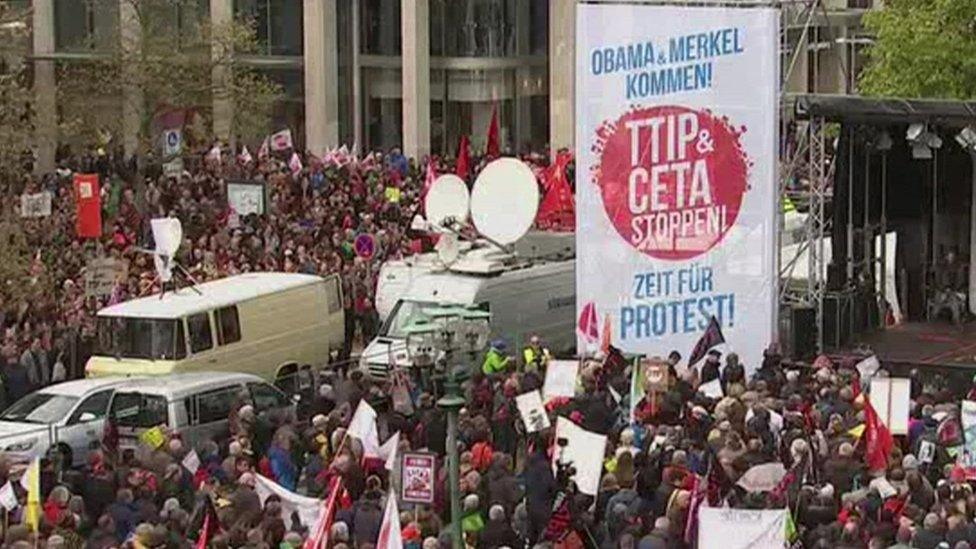President Obama offers support to embattled Angela Merkel
- Published
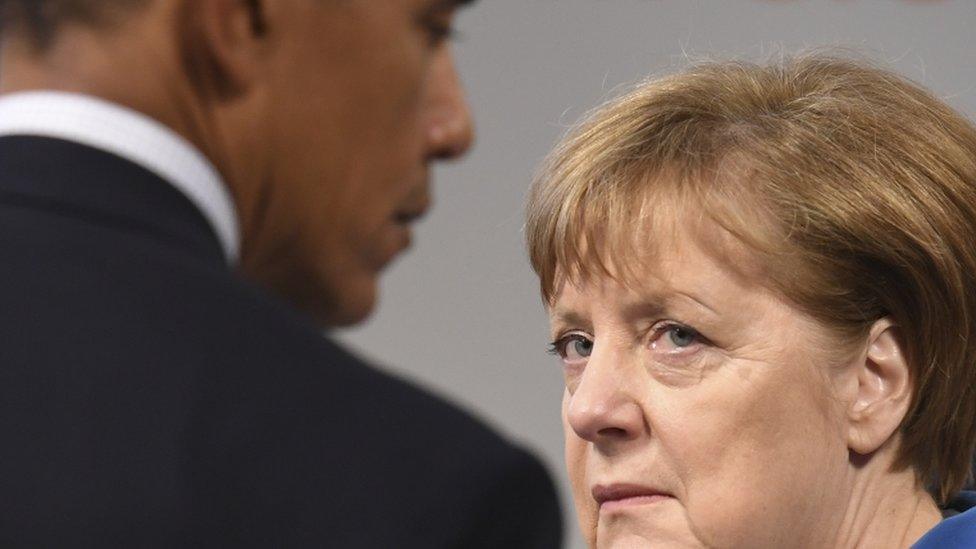
The United States likes to reward what it sees as political virtue. So it is no accident that President Obama favoured Germany and its Chancellor, Angela Merkel, with the final stop of this trip to Europe - not quite his farewell tour, but close to it.
He regards her as the strong lynchpin holding together a fractious continent against considerable odds, not least the risks of further damage to her popularity in Germany.
You could hear the warmth in the president's voice as he delivered a very big speech in Hanover.
"On behalf of the American people, I want to thank Angela for being a champion of our alliance… I want to thank you for your commitment to freedom and equality and human rights, which is a reflection of your inspiring life.
"I truly believe you've shown us the leadership of steady hands... And over the last seven years, I have relied on your friendship and counsel and your firm moral compass."
Power respects power - and genuinely democratically-elected leaders respect longevity in those subjected repeatedly to trial by voters.
After nearly 11 years at the helm of the EU's most populous, most prosperous nation Chancellor Merkel is a true survivor. She was already something of a veteran at summit tables when Barack Obama first entered the White House.
The president had a substantial message to deliver in a speech entitled grandly "Address to the People of Europe"., external
He wanted to grab the attention of an entire continent, after commanding the attention of all in Britain - both friends and foes - with his particular message in London rammed home hard in the midst of the "leave or remain" referendum campaign.
Europe 'must raise game'
This time, the US leader was exhorting an entire continent to lift its eyes and raise its game.
He didn't minimise the challenges, listing what he called barbaric terrorism, Russian aggression, plus "a generation of young people without jobs who may look to the future with diminishing hopes".
All these persistent challenges, according to Mr Obama, led some to question whether European integration could long endure.
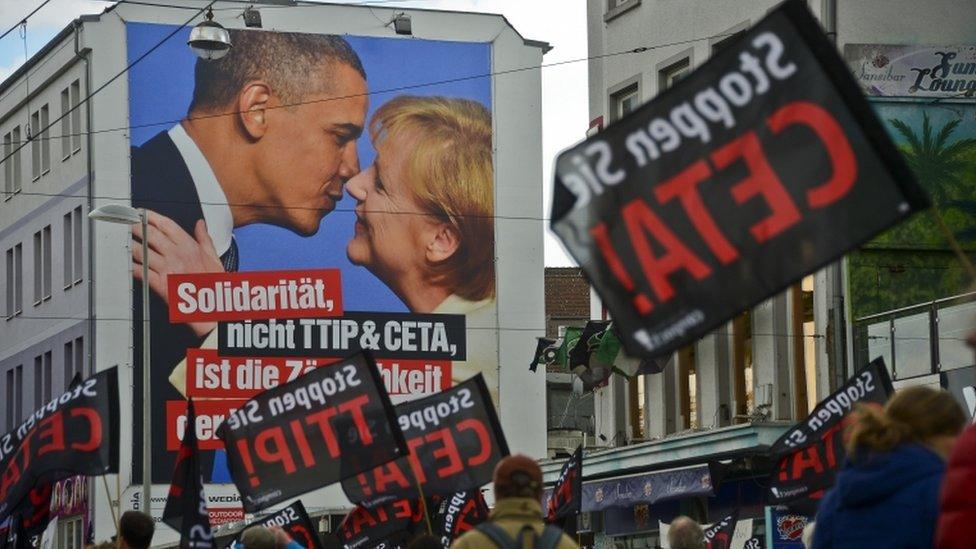
Protestors have been out in force in Germany to campaign against free trade agreements
And that is where, from the Obama perspective, Germany under Chancellor Merkel has demonstrated courage and steadfastness.
So he honours the Chancellor's commitment to closing a deal between Europe and the US on the massive, highly controversial, Transatlantic Trade and Investment Partnership (TTIP).

What is TTIP?
The Transatlantic Trade and Investment Partnership, now generally known as TTIP, is primarily a deal to cut tariffs and regulatory barriers to trade between the US and EU countries, making it easier for companies on both sides of the Atlantic to access each other's markets.
Industries it would affect include pharmaceuticals, cars, energy, finance, chemicals, clothing and food and drink.

Thousands of passionate Germans are among those in Europe who have taken to the streets to reject what they see as US dictation of an agenda to undermine workers' rights and environmental protection in favour of capitalism unchained and under-regulated.
The president insisted again in his Hanover speech that labour rights would be protected, even strengthened. But he is aware that it is just one area in which Angela Merkel faces real political jeopardy.
Obama calls for greater European unity
Obama tells young to 'reject cynicism'
Migrant crisis: Merkel says vote a 'difficult day' for her party
German power is the real key to Europe
Many will disagree profoundly, but the president also saluted the lead, external the Chancellor gave with her offer to accept record numbers of migrants from Syria, even if she has been forced to beat a partial retreat.
Politics of division
He talked about "a creeping emergence of the kind of politics that the European project was founded to reject - an 'us versus them' mentality that tries to blame our problems on the other, somebody who doesn't look like us or doesn't pray like us, whether it's immigrants, or Muslims, or somebody who is deemed different than us.
"And you see increasing intolerance in our politics. And loud voices get the most attention. This reminds me of the poem by the great Irish poet WB Yeats, where the best lack all conviction, and the worst are full of passionate intensity.
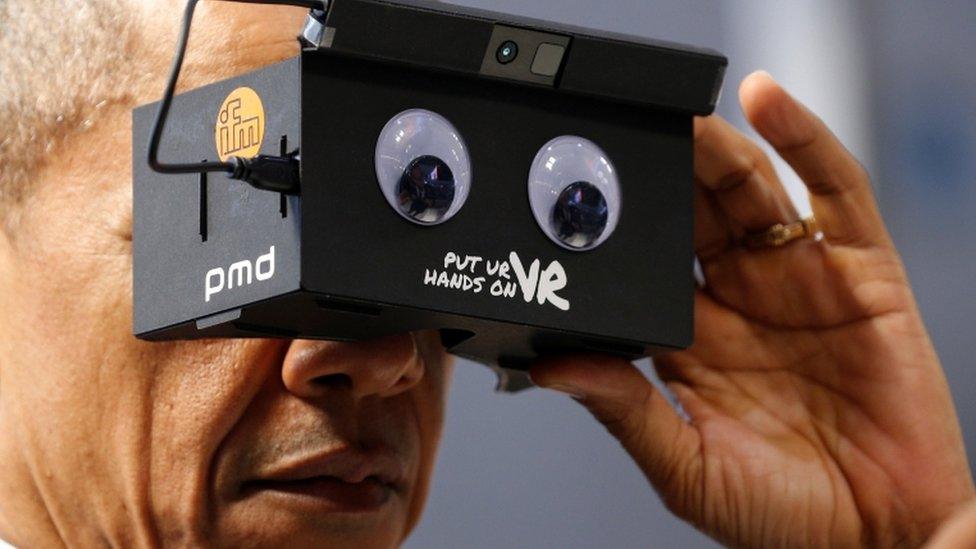
Seeing the future? President Obama tried out virtual reality glasses at the Hanover Trade Fair
"If a unified, peaceful, liberal, pluralistic, free-market Europe begins to doubt itself, begins to question the progress that's been made over the last several decades, then we can't expect the progress that is just now taking hold in many places around the world will continue.
"Instead, we will be empowering those who argue that democracy can't work, that intolerance and tribalism and organising ourselves along ethnic lines, and authoritarianism and restrictions on the press - that those are the things that the challenges of today demand.
"So I've come here today, to the heart of Europe, to say that the United States, and the entire world, needs a strong and prosperous and democratic and united Europe."
President Obama regards Germany under its present Chancellor as Europe's best hope.
- Published25 April 2016
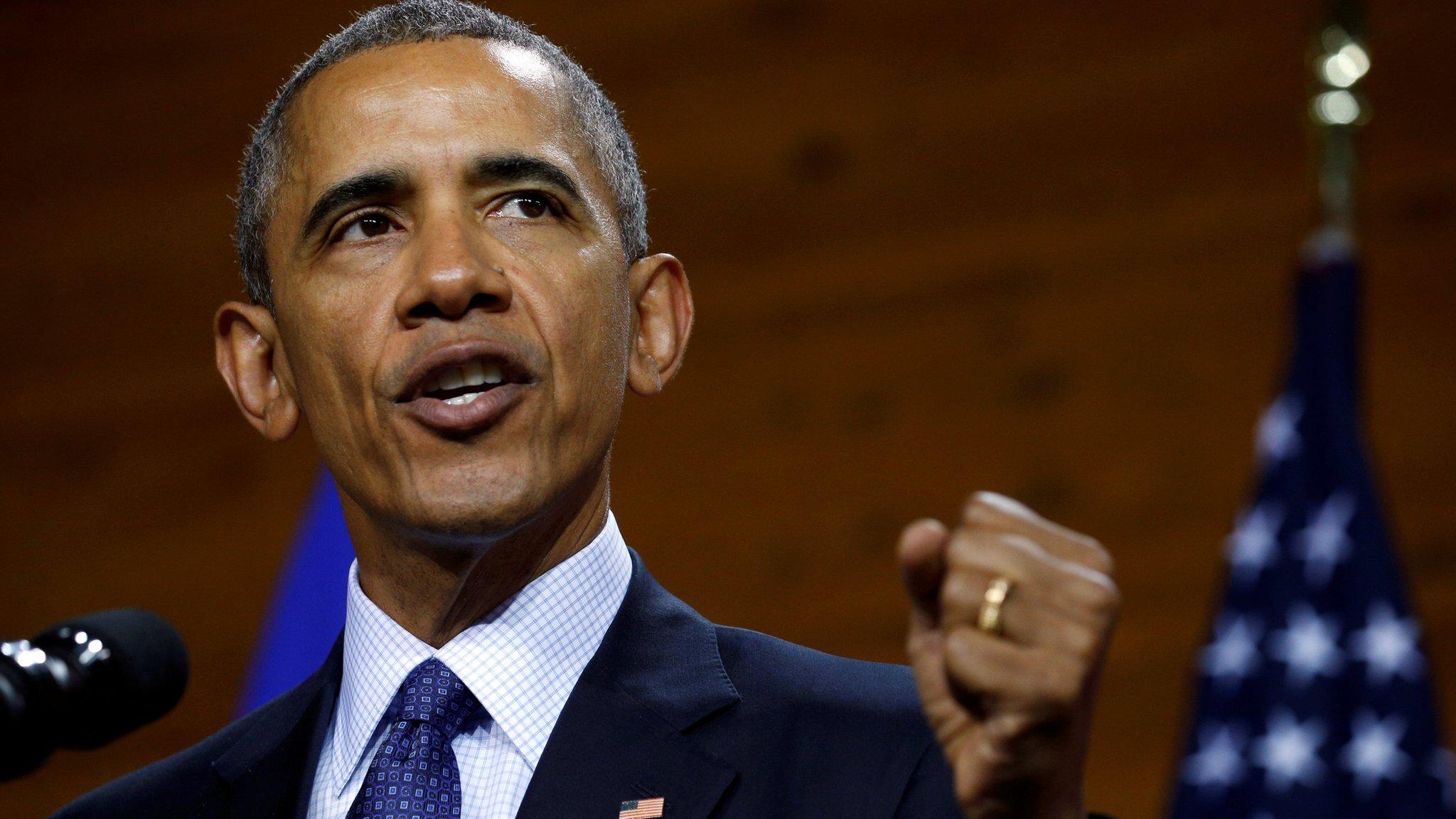
- Published23 April 2016
